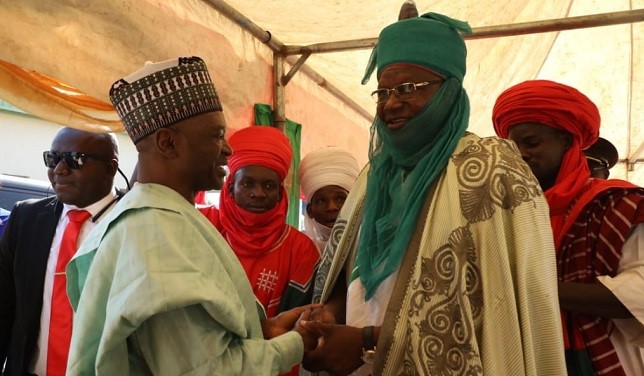Minister of Environment, Dr Mohammed Mamoud, says the menace of municipal solid waste is one of the gravest environmental challenges facing the country.

Mamoud made this known on Monday, November 4, 2019 during official the commissioning and handover of the Community Based Waste Management Project in Karu Local Government Area, Nasarawa State.
The Community Based Waste Management Programme is an intervention scheme of the Federal Government in municipal solid waste management.
It is designed to assist states to manage their municipal solid wastes in an environmentally sound manner.
The minister said that the menace of municipal solid waste could be linked to urban migration, over population, emergence of urban slums, industrialisation, changes in consumption patterns.
Others, according to him, include inadequate planning, inadequate resources and facilities to sustainably manage waste being generated.
“The menace posed by municipal solid waste in Nigeria, particularly in our urban areas is one of the gravest environmental challenges facing the country.
“In recent years, states and local governments throughout the federation have intensified efforts to ensure that municipal solid wastes generated within their domains are properly managed,” he said.
He, however, said that the problem still persisted as all manners of wastes were being disposed off indiscriminately in open and unlined pits, drainage systems, water bodies and on any available space.
The minister said that more worrisome was both hazardous and non-hazardous wastes including hospital wastes were disposed of in dump sites and burnt openly as these practices pose great risk to health and the environment.
He said that against this background that the Federal Government designed the Community Based Waste Management Programme as an intervention waste to wealth initiative to assist states manage their waste in environmentally sound manner.
“This programme is also expected to among others train and generate employment particularly for youths and women, attract private sector participation and investment including Foreign Direct Investment (FDI).
“The ministry is equally reviewing existing waste management instruments and putting in place new ones including policies, regulations, technical guidelines and standard.
“This will ensure that the wastes generated in the country are managed in environmentally sound and sustainable manner with the private sector as the main driver in waste management for viability and sustainability.”
Mamoud said that the project in Karu Local Government Area was one of several community-based management projects being implemented by this administration with others at different stages spread across the other geopolitical zones.
The contract for the Karu project was awarded in November 2017, and it has been successfully completed as designed.
The project components include segregation at household level, backlog evacuation of wastes, continuous collection of wastes, construction of Plastic Recycling Plant (Pelletizer) and construction of public toilet.
Others include procurement of waste trucks, waste receptacles to be placed in public places such as motor parks, market or high population density areas, Procurement and distribution of colour coded waste bins to facilitate waste segregation/recycling.
Other are procurement and distribution of waste carriage bags for waste collection, 250KVA soundproof generator among others.
Gov. Abdullahi Sule of Nasarawa State commended the effort of the ministry for choosing Karu and promised that the state would ensure maximum utilisation of the project.
Sule said that waste could devastate the environment, adding that the state had commenced the monthly environmental sanitation to keep it clean and healthy.
He said his administration would continue to sensitisation the people on indiscriminate dumping of waste in drainage and the need to convert of waste to wealth.
Mr Tanko Auta, the Sole Administrator of Nasarawa State Waste Management Bureau said that greater Karu was adjudged by the World Health Organisation (WHO) to be the fastest growing urban centre in the world.
He assured the ministry that the intervention projects would be judiciously utilised for the purpose they were meant for.
By Francisca Oluyole
